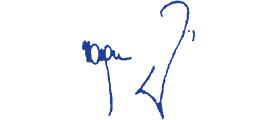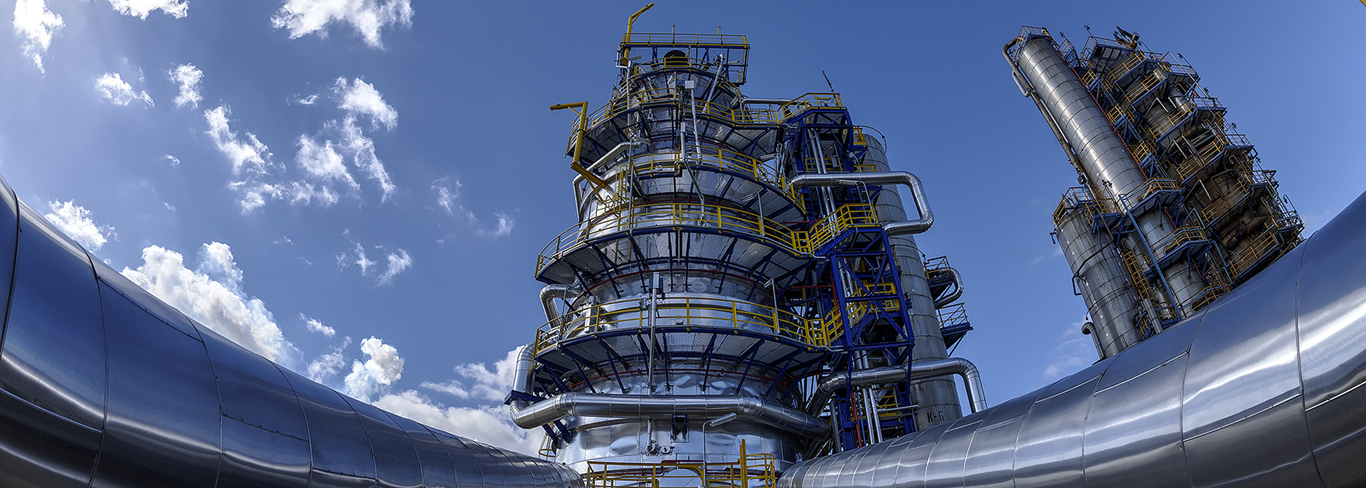
CONCEPT AND KEY FUNCTIONALITIES
We present the ORLEN Group's annual report, prepared as an integrated report. This seventh integrated report is a key and comprehensive document describing the financial and non-financial activities of the ORLEN Group.
This Integrated Report is addressed to all ORLEN Group stakeholders, in particular the financial market participants, customers, subcontractors, suppliers, local communities, and employees.
This Integrated Report includes data on the Polski Koncern Naftowy ORLEN Group (the “ORLEN Group”) and Polski Koncern Naftowy ORLEN S.A. (“PKN ORLEN”, the “Company”) for 2020. This Integrated Report presents the activities carried out by the ORLEN Group in 2020. The previous report, for 2019, was published in July 2020. Our integrated reports are issued on an annual basis and are continuously evolving, to reflect changes within the ORLEN Group and in its environment.
In 2020, we significantly altered the scope and the measurement methods applied relative to the previous Report.
The changes were made in the following areas:
- The number of entities reported on for 2020 was extended following the acquisition of the Energa Group by PKN ORLEN in 2020. The Energa Group’s business consists of heat and electricity generation, distribution and trading, and sale of natural gas. This Report includes data and information relating to the Energa Group for the period from May 1st to December 31st 2020. In the case of a few exclusions, a relevant explanation is provided.
- Furthermore, the standard for GRI-compliant reporting of information on health and safety at work, and water and effluents has changed.
- The number of GRI indicators reported in the Energy area has been expanded. This Report includes new sector-specific indicators from Electric Utilities Sector Disclosures (G4 EU).
The following organisations were not included in reporting in accordance with the GRI Standards for 2020:
- Grupa RUCH, in which PKN ORLEN acquired a 65% equity interest in November 2020. Since the transaction took place at the end of 2020 and it is necessary to align the scope of data and the data collection methods at Grupa RUCH with the standards applicable at the ORLEN Group, RUCH was not included in this Integrated Report for 2020.

Some aspects of our non-financial activities are presented using the examples of selected ORLEN Group companies whose business scope is of key significance to the Group.
Significant changes in the organisation'ssize, structure, ownership, and its supply chain during the reporting period
The changes made in the ORLEN Group’s structure were in pursuance of the strategy to focus on core business and allocate the released capital to development of the business areas that offer the greatest growth potential.
In line with the ORLEN Group's new long-term strategy adopted in November 2020, our key objectives are to be a regional leader in energy transition, develop new renewable power generation capacities, and pursue decarbonisation, while preserving operational efficiency and financial strength in its traditional business segments. Given the prevailing market trends, we are consistently diversifying our business towards building a multi-utility conglomerate. The effective acquisition of the Energa Group in 2020 and continued work on other acquisition targets are part of this process. Recognising the importance of the retail segment, we proceeded with expanding our service station chain in Poland and abroad, and commenced development of the non-fuel retail segment with the acquisition of the RUCH Group in 2020. We also seek to continue strategic growth in petrochemicals and gas-fired power generation, as well as in new business areas such as new mobility, hydrogen technologies, recycling, R&D and digital transformation.
Crude oil
PKN ORLEN supplies crude oil to the Płock refinery and to three other ORLEN Group refineries, in Litvínov and Kralupy in the Czech Republic, and in Lithuania’s Mažeikiai.
In 2020, oil was supplied to Poland and Lithuania without any disruption. In the Czech Republic, the volume of crude oil purchased in May and June was lower due to an extended shutdown of the refinery and limited storage capacities.
In 2020, two long-term contracts for oil supply via pipeline to the Płock refinery (with Rosnieft Oil Company and Tatneft Europe AG) and one long-term contract for oil supply by sea (with Saudi Arabian Oil Company) were in force. These contracts covered almost 83% of crude oil supplies to PKN ORLEN.
The feedstock for all refineries of the ORLEN Group was procured from oil producers and other companies operating on the international oil market. The crude supplied to Płock came primarily from Russia and Saudi Arabia, but was also imported from Kazakhstan, Nigeria and Norway. The refineries in the Czech Republic received the feedstock from Russia, Algeria, Saudi Arabia, Azerbaijan, Kazakhstan, Nigeria, Norway and the United States. The Mažeikiai refinery was primarily supplied with Russian oil, with additional deliveries from Saudi Arabia, Kazakhstan and the United Kingdom.
In 2020, the share of Rosneft Oil Company in the crude supplies exceeded 10% of the ORLEN Group’s total revenue.
Natural gas
The ORLEN Group is potentially the largest gas consumer in Poland and one of the largest in the Czech Republic and Lithuania.
Natural gas is used by the Group in the production of heat, electricity, fuels and fertilizers. In Poland, the ORLEN Group’s combined potential for natural gas consumption exceeds 3 bcm per year. Natural gas is used by the Group mainly at the following locations:
- PKN ORLEN's production plant in Płock: for refining, petrochemical, electricity and heat production;
- ANWIL’s production plant in Włocławek: for fertilizer production;
- ORLEN Południe's production plants in Trzebinia and Jedlicze: for refining, electricity and heat production;
- CCGT unit in Płock: for electricity and heat production;
- CCGT unit in Włocławek: for electricity and heat production;
- Unipetrol Group’s production plants and the production plant in Neratovice (Spolana): for refining, petrochemical, electricity, heat and fertilizer production;
- Production plant in Mažeikiai: for electricity and heat production.
Most deliveries of natural gas to the ORLEN Group companies in Poland are made under a contract signed in 2016 by PKN ORLEN and PGNiG. Under annexes executed in 2020, the contract will remain in force until 2027 (with an option to extend it for another 12 months). Purchases are also made under supplementary contracts with major gas suppliers in Poland and Europe. In addition, gas is purchased on the Polish Power Exchange. The ORLEN Group takes steps to ensure stability of supplies and to lower gas procurement costs through such measures as diversification of supply sources, centralisation of gas trading functions and further development of the trading expertise. The current portfolio of gas contracts allows the Group to optimise gas procurement costs by selecting the underlying gas indices and delivery points.
PKN ORLEN has gas transmission contracts with both domestic and foreign operators, ensuring full support in natural gas logistics for the production plant in Płock, CCGT Włocławek, and CCGT Płock. PKN ORLEN has also been developing natural gas sales on both retail and wholesale markets, while the ORLEN Group is engaged in a number of exploration and production projects to secure its own sources of natural gas.
In 2020, the value of deliveries by none of the suppliers of natural gas to the ORLEN Group accounted for more than 10% of the Group’s total revenue.
Hard coal
Hard coal is the main fuel used by the Energa Group to produce electricity and heat. In 2020, the Energa Group’s generating units used 826,000 tonnes of hard coal and 147,000 tonnes of biomass (2019: 1,059,000 tonnes and 148,000 tonnes, respectively). The key sources of hard coal supplies were Polska Grupa Górnicza, Lubelski Węgiel Bogdanka and Jastrzębska Spółka Węglowa.
Reporting standardsand methodologies
This Report has been prepared in accordance with:
- Art. 49b.1 and Art. 55.2b-e of the Polish Accounting Act of September 29th 1994, as amended, which implements the guidelines of Directive 2014/95/EU of the European Parliament and of the Council of October 22nd 2014 on disclosure of non-financial and diversity information; To comply with the requirements set out in those regulations, in April 2020 we issued the Non-Financial Statement of the ORLEN Group and PKN ORLEN S.A. for 2020.
- International Financial Reporting Standards (IFRS), including the International Accounting Standards (IAS) and Interpretations of the Standing Interpretations Committee (SIC) and the International Financial Reporting Interpretations Committee (IFRIC), as endorsed by the European Union (EU). The accounting principles applied by the Group are based on standards and interpretations endorsed by the European Union and applicable to periods beginning on or after January 1st 2020.
- GRI Sustainability Reporting Standards (GRI Standards) This report presents indicators from three Universal Standards (Foundation, GRI 101), General Disclosures (GRI 102), Management Approach (GRI 103), and selected Topic-specific Standards from the Economic (GRI 200), Environmental (GRI 300) and Social (GRI 400) series. This Report also includes selected sector-specific indicators from Electric Utilities Sector Disclosures (G4 EU) and Oil and Gas Sector Disclosures (G4 OG).
GRI Standards 2016 are an international standard for reporting on economic, environmental and societal impacts of an organisation, and the most widely used ESG (environmental, social and governance) reporting standard in the world.
The scope of information contained in this Report takes into account the expectations resulting from international ESG ratings. PKN ORLEN also takes steps to consistently improve its compliance with the non-mandatory recommendations of the European Commission (EC Communication 2019/C 209/01) and of the Task Force on Climate-related Financial Disclosures (TCFD) regarding information on climate issues.
The layout and contents of this publication are based on the recommendations and guidelines of the International Integrated Reporting Council.
Compliance of reporting with the European Commission and TCFD recommendations
|
Disclosures recommended by TCFD |
Disclosures under NFRD Directive |
|||||
|
Business model |
Policies pursued and due diligence processes |
Outcome of those policies |
Principal risks and how they are managed |
Key performance indicators |
||
|
Governance |
Management Board’s oversight |
√ |
√ |
|
|
|
|
Management Board’s role |
√ | √ |
|
|
|
|
|
Strategy |
Climate-related risks and opportunities |
√ | √ | √ | √ | √ |
|
Impact of climate-related risks and opportunities |
√ | √ | √ | √ | √ | |
|
Resilience of the organisation’s strategy |
√ | √ | √ | √ | √ | |
|
Risk Management |
Processes for identifying and assessing risks |
√ | √ | √ | √ | √ |
|
Processes for managing risks |
√ | √ | √ | √ |
|
|
|
Integration into the organisation’s overall risk management |
√ |
|
|
√ |
|
|
|
Metrics and targets |
Metrics used to assess risks |
|
|
√ | √ | √ |
|
GHG emissions |
√ | √ | √ | √ | √ | |
|
Targets |
√ | √ | √ | √ | √ | |
This document presents activities aimed at achieving the UN Sustainable Development Goals 2030.
The ESG section presents the ORLEN Group’s best practices and key ESG data.
Preparation of this Report included the following stages:
- A survey of the ORLEN Group internal and external stakeholders’ opinions on sustainable development and corporate social responsibility, held in November 2020. The project involved, among other things,a revision of the reported aspects and the stakeholder map. Stakeholder consultations consisted in conducting a survey (online survey method) and individual interviews with representatives of the ORLEN Group key and important stakeholders. The purpose was to learn about their opinions and expectations on the scope of integrated reporting for 2020 and future activities of the ORLEN Group in the area of corporate social responsibility and sustainable development. The survey was carried out in accordance with the international AccountAbility Stakeholder Engagement Standard – AA1000SES, providing the rules for stakeholder relations management.
- Confirmation of significant business and social responsibility issues relevant to the ORLEN Group, and their materiality,
- Confirmation of the Stakeholder Map and relevant reporting aspects,
- Collection of data showing implementation of the policies, strategies and objectives of corporate social responsibility, as well as the due diligence procedures and risk management policies and how they are put into effect at the ORLEN Group,
- Preparation of this ORLEN Group Report for 2020, based on the collected data in accordance with the Polish Accounting Act of December 15th 2016 (Dz.U. of 2017, item 61), GRI Standards 2016 (Core option), and guidelines for integrated reporting issued by the Integrated Reporting Council. This Integrated Report has also been prepared based on the Directors’ Report on the operations of the ORLEN Group in 2020, the Consolidated Financial Statements of the ORLEN Group for the year ended December 31st 2020, and the Non-Financial Statement of the ORLEN Group and PKN ORLEN S.A. for 2020, all issued in April 2021. These documents are available at: https://www.orlen.pl/EN/InvestorRelations/FinancialData/Pages/FinancialResults.aspx
- External assurance of this Report based on the ISAE 3000 standard.
Keyfunctionalities
This Integrated Report is only available online, with a number of functionalities and tools facilitating access to its contents, including:
- Interactive key performance indicators reflecting current and historical data.
- Glossary of financial and industry-specific terms.
- Table of GRI Indicators based on which the non-financial performance is reported.
- All multimedia content of this Integrated Report is available in the Multimedia Centre.
- Key publications relating to the ORLEN Group’s operations in 2019 are downloadable from the Document Centre.
- Selected figures are available in the Charts and Tables Centre and ORLEN in figures.
- An instructional video on how to navigate this Report is available in the Help section.
This Report also contains interactive infographics, including the business model, the value creation model, and the map of markets.
It is possible to generate a pdf file of this Report.
Users can complete an interactive questionnaire to provide feedback on this Report.
Connectivity
The contents of this Report are not static. Each sub-section is linked to:
- Capitals – the content may be defined by the manufactured, intellectual, natural, social, human and financial capitals. This linkage enables easier access to information on the capitals, which overlap and thus build Company value in different areas.
- GRI Standards indicators – this Report presents non-financial data in compliance with the Core option of the Global Reporting Initiative Standards. Each internal page contains information on the relevant GRI indicator, along with several other tools, such as the GRI search and the GRI content index.
- Sustainable Business Development Goals 2030 – each internal page includes icons for the particular Goals the implementation of which is supported by the ORLEN Group.
- Related sections – each page of this Report is linked to two other pages with similar or supplementary topics.
Approval of the Reportby the Management Board
The Management Board of PKN ORLEN confirms that the ORLEN Group’s Integrated Report for 2020 contains a comprehensive description of the ORLEN Group’s financial and non-financial activities, and gives assurance as to the truthfulness, accuracy and reliability of the information it contains.

President of the Board

Member of the Board

Member of the Board

Member of the Board

Member of the Board

Member of the Board

Member of the Board

Member of the Board







